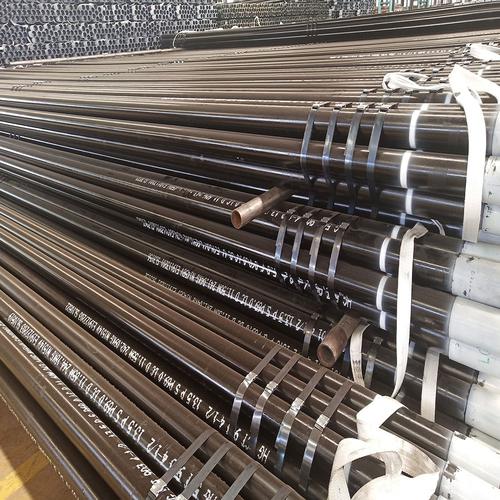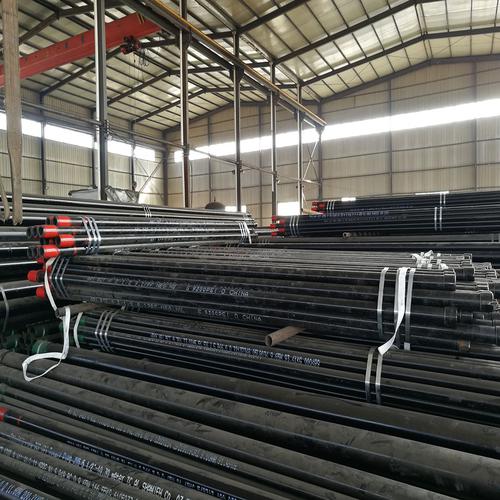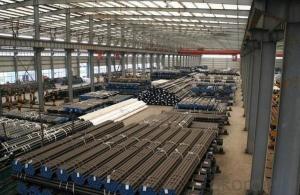Sour Service L80-13Cr Corrosion Resistant Casing Factory Price
- Loading Port:
- Tianjin
- Payment Terms:
- TT OR LC
- Min Order Qty:
- 1 m.t.
- Supply Capability:
- 1100 m.t./month
OKorder Service Pledge
OKorder Financial Service
You Might Also Like
Specification
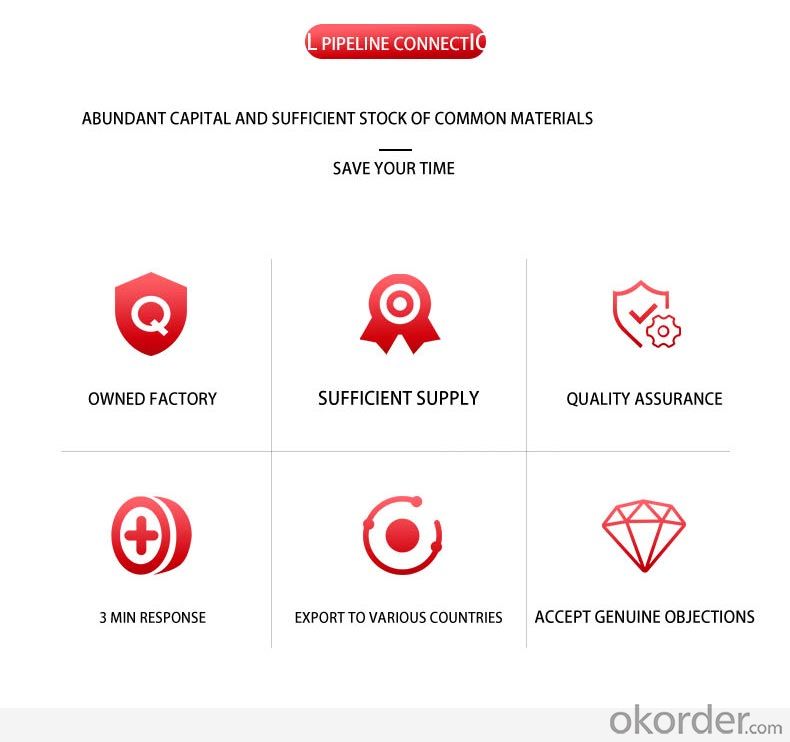
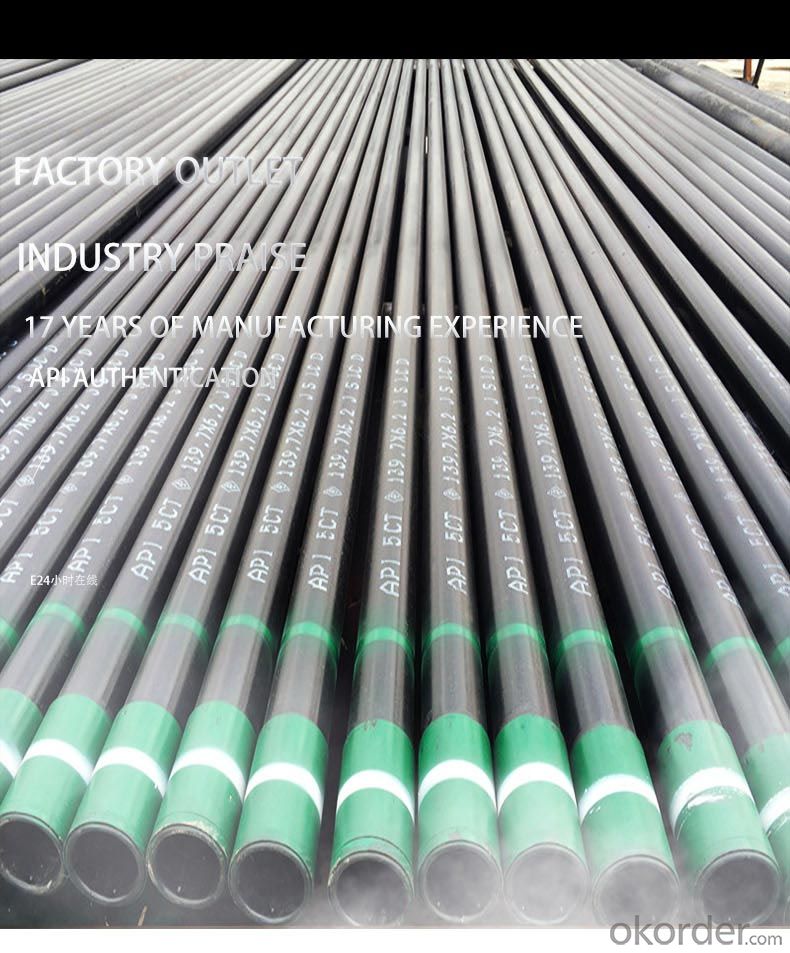
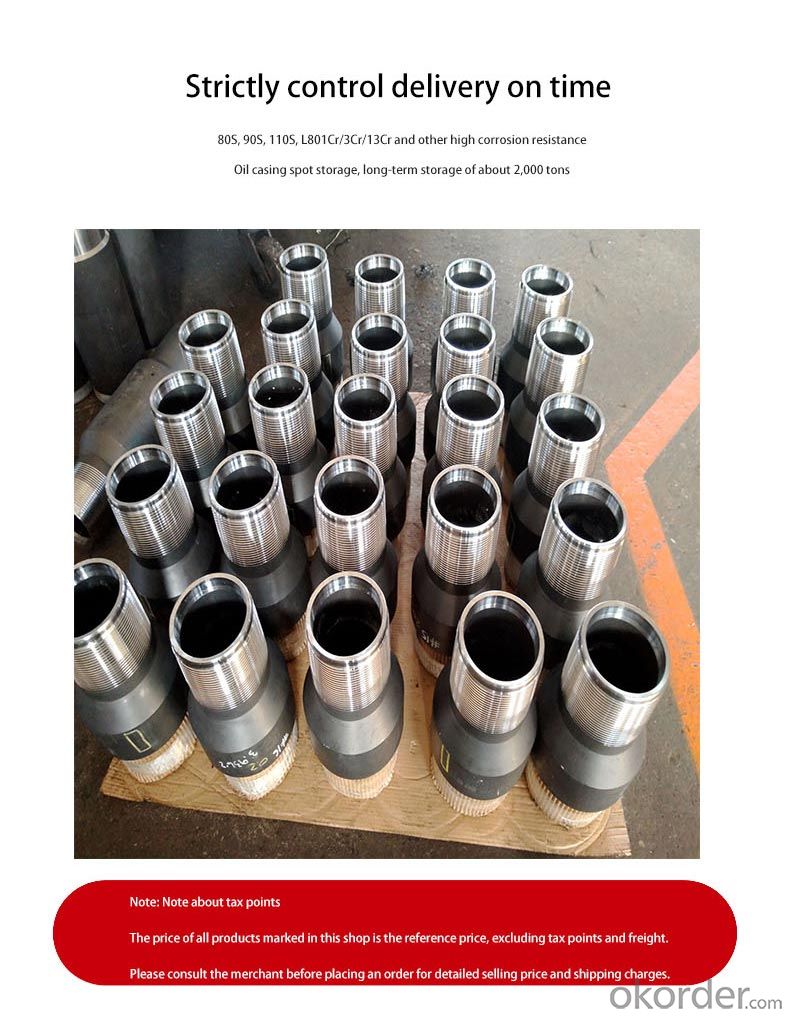
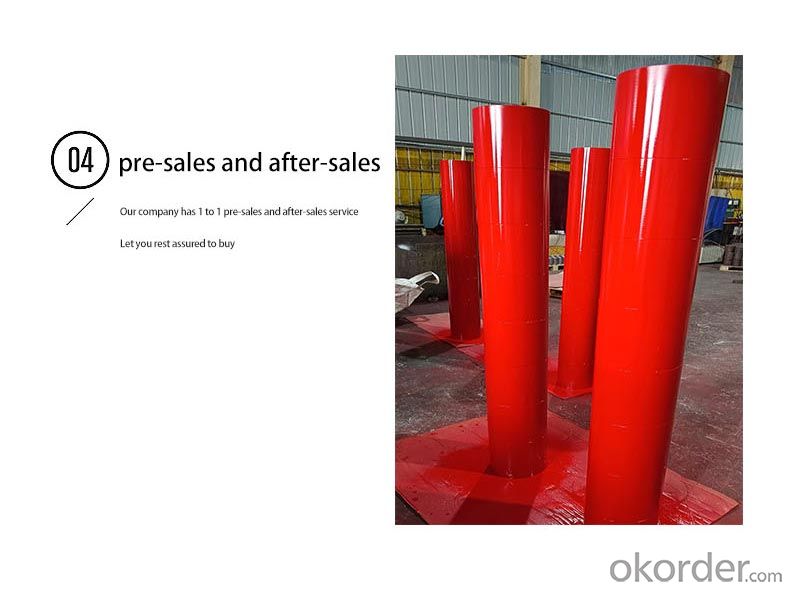
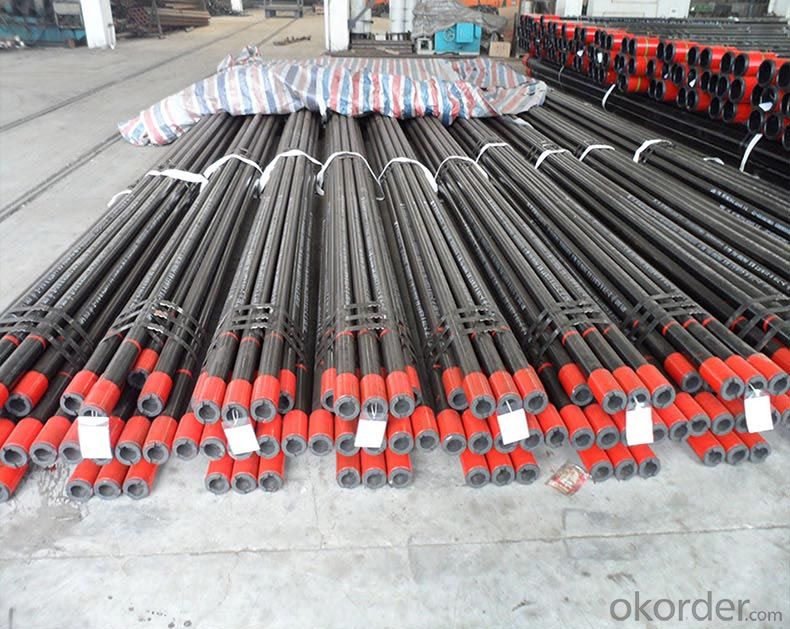
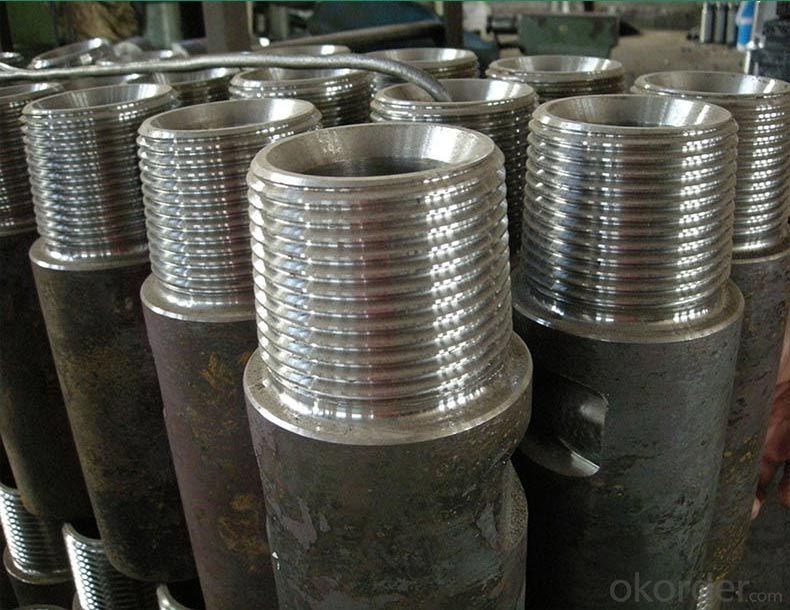
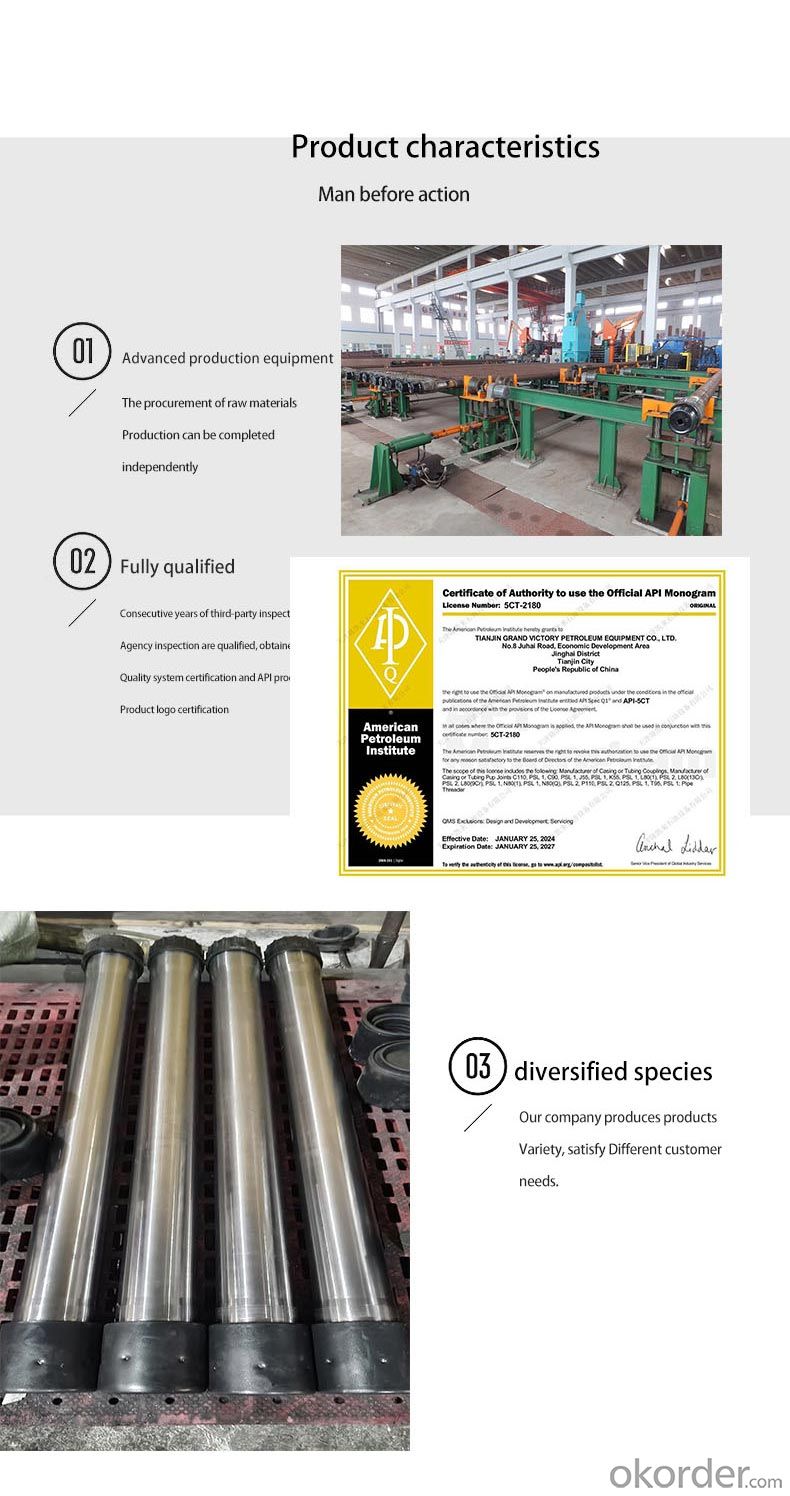
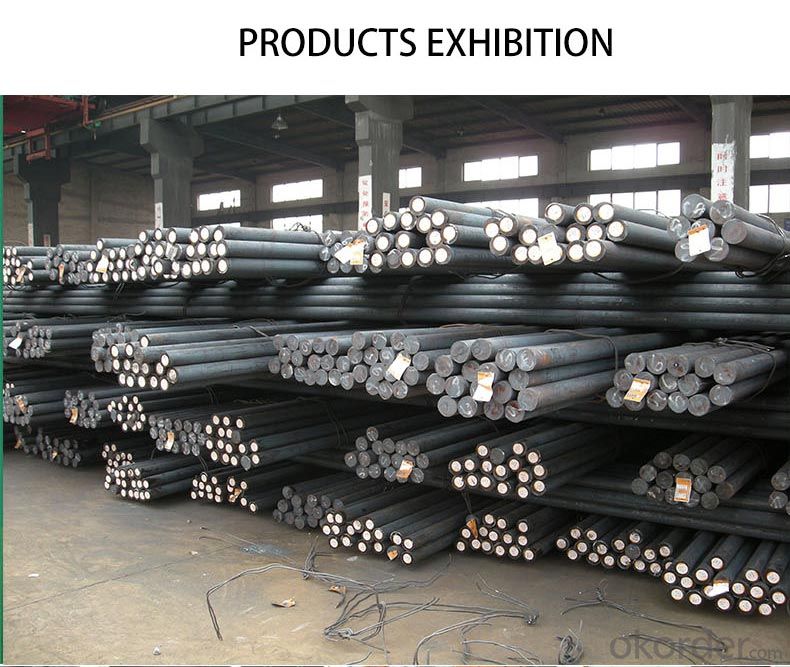
API 5CT J55/N80/P110 OCTG Casing & Tubing Manufacturer Direct
Comprehensive OCTG Solutions for Every Well Profile
As an API-licensed manufacturer, we eliminate intermediaries to deliver J55/N80/P110 casing and tubing with 15% cost savings. Our vertically integrated production process ensures full traceability from steel billet to finished product.
Technical Specifications
Material Science:
J55: 0.45% Mn, 0.25% C composition for shallow wells (≤8,000ft TVD)
N80: Quenched & tempered microstructure withstands 12,000psi collapse pressure
P110: 110ksi SMYS with Charpy V-notch impact ≥45J at -20°C
Threading Technology:
CNC-machined API LTC/BTC threads with ±0.003" pitch diameter tolerance
Optional VAM TOP connections for HPHT wells
Quality Assurance:
100% ultrasonic testing (UT) for laminations
Hydrostatic tested to 80% of yield strength
Applications
J55: Water injection wells, surface casing
N80: Intermediate casing in sour gas fields
P110: Production casing in 15,000psi reservoirs
Case Study
A Permian Basin operator reduced casing costs by 18% using our direct-shipment P110 casing for 35 horizontal wells, achieving 95% torque-turn compliance during running
- Q: How do you determine the required support spacing for steel pipes?
- The required support spacing for steel pipes is determined based on several factors including the pipe material, size, weight, and operating conditions. Generally, industry standards and guidelines such as those provided by the American Society of Mechanical Engineers (ASME) are followed to calculate the appropriate spacing. These standards take into account factors such as pipe deflection, thermal expansion, vibration, and load-bearing capacity to ensure the pipes are adequately supported and do not experience excessive stress or deformation.
- Q: How do steel pipes compare to other materials like PVC or copper pipes?
- Steel pipes are known for their durability and strength, making them highly preferable for applications that require high pressure and extreme temperatures. In comparison to PVC pipes, steel pipes offer superior resistance to impact, corrosion, and fire, making them suitable for harsh environments. Copper pipes, on the other hand, are primarily used for plumbing and heating systems due to their excellent heat conductivity. While steel pipes may be more expensive than PVC or copper, their robustness and longevity make them a reliable choice for various industrial and infrastructure projects.
- Q: What is the flexibility of steel pipes?
- Steel pipes possess exceptional flexibility, rendering them highly versatile and suitable for a wide array of applications. Their flexibility is derived from the inherent properties of steel, such as its high tensile strength and ductility, enabling them to bend and endure various forms of stress without breaking or deforming. The structural integrity of steel pipes remains intact even when bent or shaped into different forms. This facilitates simpler installation and routing around obstacles, making them more adaptable for intricate plumbing or piping systems. Furthermore, the flexibility of steel pipes allows them to withstand external forces like ground movements or temperature fluctuations without sustaining significant damage. Moreover, the flexibility of steel pipes makes them ideal for applications that involve dynamic movement or expansion. In the case of oil and gas pipelines or heating and cooling systems, where temperature variations can lead to expansion and contraction, steel pipes can accommodate these changes without causing leaks or failures. Additionally, the flexibility of steel pipes contributes to their durability and longevity. The ability to endure bending and stress prevents the formation of cracks or fractures that could result in leaks or structural failures. This characteristic establishes steel pipes as a dependable choice for demanding environments, including high-pressure systems or corrosive conditions. To sum up, the flexibility of steel pipes is a crucial attribute that allows for effortless installation, adaptability to diverse conditions, and long-term reliability. Due to their remarkable flexibility, steel pipes are extensively preferred in numerous industries and applications where strength, durability, and versatility are paramount.
- Q: SC15 what does galvanized steel pipe look like?
- Ordinary galvanized steel pipe, the outer diameter is 1.5 inches
- Q: What are the alternatives to steel pipes for various applications?
- Some alternatives to steel pipes for various applications include PVC (polyvinyl chloride) pipes, copper pipes, aluminum pipes, and fiberglass pipes. Each alternative has its own advantages and disadvantages, such as cost, durability, and resistance to corrosion, which make them suitable for specific applications.
- Q: How are steel pipes insulated against heat loss?
- Steel pipes are commonly insulated against heat loss by applying a layer of thermal insulation material around the pipes. This insulation material can be in the form of foam, mineral wool, or fiberglass. The insulation is typically wrapped tightly around the pipes and secured with adhesive or tape to ensure proper coverage. This insulation layer helps to reduce heat transfer through the pipe walls, thereby minimizing heat loss. Additionally, the insulation may be covered with a protective jacket or coating to provide further protection against external elements.
- Q: Can steel pipes be used in marine environments?
- Yes, steel pipes can be used in marine environments. Steel is a durable and strong material that can withstand the harsh conditions of the marine environment, including exposure to saltwater, waves, and corrosion. However, it is important to select the correct type of steel and apply suitable protective measures to prevent corrosion. Stainless steel and corrosion-resistant alloys are commonly used in marine applications as they have a high resistance to corrosion and can handle the constant exposure to saltwater. Additionally, coatings such as epoxy or zinc can be applied to further protect steel pipes from corrosion. Regular maintenance and inspections are also crucial to ensure the longevity and performance of steel pipes in marine environments.
- Q: What is a flange and how is it used in steel pipes?
- A flange is a flat, circular fitting that is attached to the end of a steel pipe. It is used to connect two pipes or fittings together, allowing for easy assembly and disassembly of the pipeline system. The flange provides a secure and leak-proof connection by bolting the flange to the adjacent flanges or equipment. It also allows for the attachment of valves, pumps, or other components to the pipeline. Overall, flanges play a crucial role in ensuring the integrity and functionality of steel pipes in various industrial applications.
- Q: How are steel pipes used in the construction of coal-fired power plants?
- Steel pipes are used in the construction of coal-fired power plants for various purposes. They are primarily utilized for the transportation of coal and other materials such as water, steam, and flue gas within the plant. Steel pipes are also used for the construction of high-pressure and high-temperature pipelines, which are essential for the efficient operation of boilers, turbines, and other equipment. Additionally, steel pipes are employed in the construction of structural components, such as support systems, frames, and columns, providing strength and stability to the overall infrastructure of the power plant.
- Q: What are the advantages of using steel pipes over other materials like PVC or copper?
- There are several advantages of using steel pipes over other materials like PVC or copper. Firstly, steel pipes have superior strength and durability, making them suitable for high-pressure applications and extreme weather conditions. Secondly, steel pipes have excellent corrosion resistance, ensuring a longer lifespan compared to PVC or copper. Additionally, steel pipes offer better fire resistance, making them safer for certain applications. Lastly, steel pipes have higher thermal conductivity, allowing for efficient heat transfer.
Send your message to us
Sour Service L80-13Cr Corrosion Resistant Casing Factory Price
- Loading Port:
- Tianjin
- Payment Terms:
- TT OR LC
- Min Order Qty:
- 1 m.t.
- Supply Capability:
- 1100 m.t./month
OKorder Service Pledge
OKorder Financial Service
Similar products
Hot products
Related keywords






